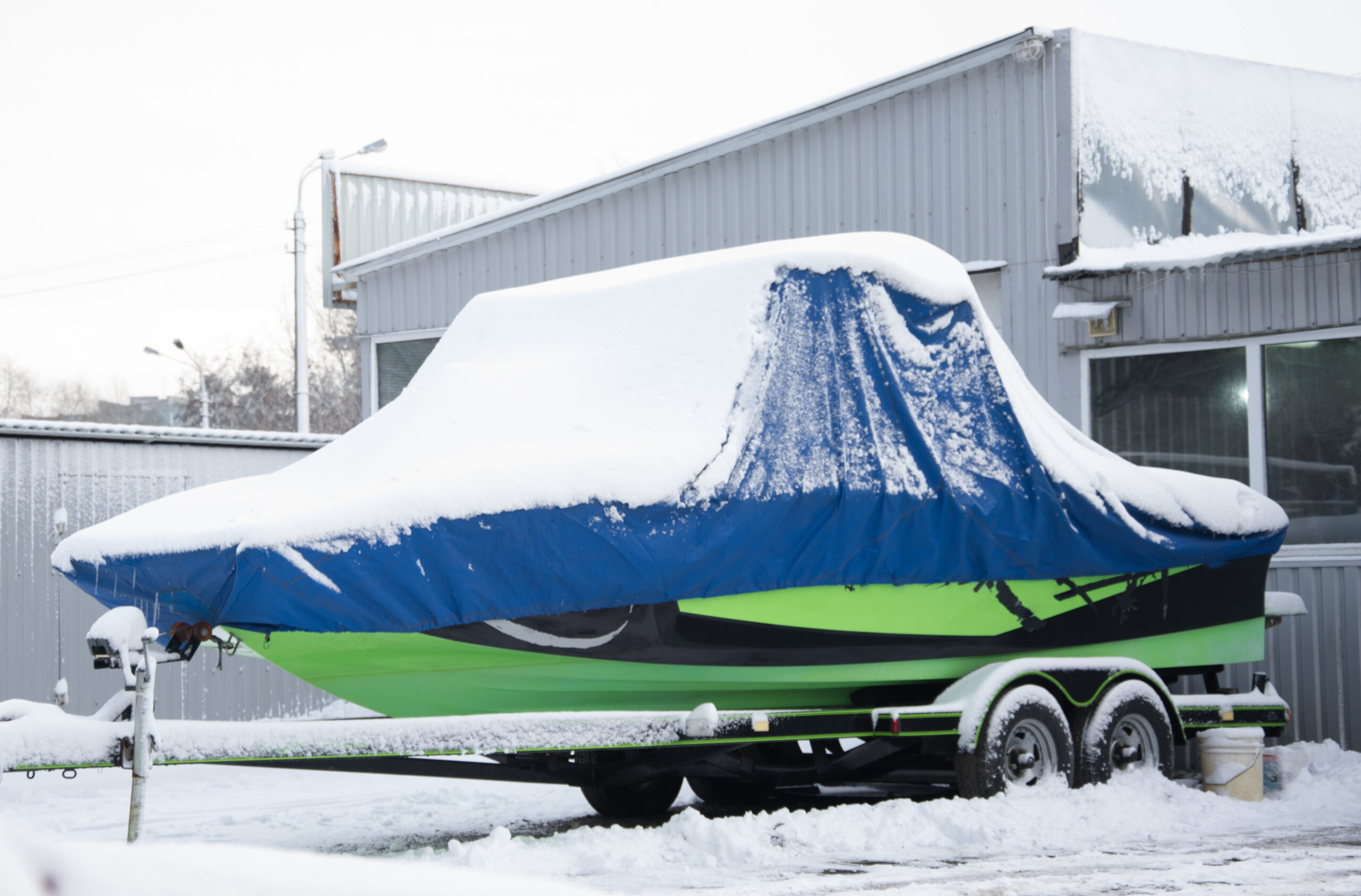The Dangers of Neglecting Winter Boat Prep

By Dennis Doyle
It’s easy to postpone winter preparations for your fishing boat. There’s always that hope for one more 70-degree day on the Bay.
However, the traditional angling season must come to an end. Dec. 10 is the last day of rockfish season in 2022 and anglers may not possess any stripers on the Chesapeake Bay after that date.
Putting your fish boat up for the winter can be emotionally difficult but there are a few things that can’t be ignored without the danger of suffering some expensive consequences.
Fuel, battery, and hull damage are some of the most critical issues to keep in mind when prepping your boat for winter.
Ignoring the necessary winter additives to your fuel may allow the legally required alcohol content to separate over the winter months and render your fuel unusable. Adding the proper chemicals after this separation occurs will not solve the problem. Not only will your motor be unable to function on the gas remaining, but the fuel itself must be removed and disposed of according to Maryland regulations and this can be an expensive task.
It’s a simple matter to acquire and add the necessary stabilizers to your fuel supply now but you must remember to run your motor for a few minutes to be sure they are distributed throughout the system. There are many fuel stabilizers available these days and most are excellent though my preference is Sea Foam Pro Marine Treatment. It’s been around for a long time, has had consistently excellent reviews, and is effective at much more than simple fuel stabilization. Plus adding too much of this product to your tanks is not a problem so you can guesstimate without fear. Too much will only result in extra clean and lubricated internal engine parts when you begin operation again.
The next essential winter maintenance is to remove your batteries or hook them up to a trickle charger. Your engine and instruments usually have background monitoring systems that require some level of electricity to operate. If your battery is disconnected, these are designed to go dormant but if you keep your battery connected throughout the winter the pull of the monitoring programs can eventually exhaust the stored charge and damage the battery to the point it must be replaced. Disconnect, fully charge, and store your battery in an area above freezing to insure an operational system in the spring.
Your motor and your boat hull areas should also be closely inspected for rainwater retention. If rainwater accumulates in any drain areas within the hull or motor areas exposed to low temperatures, the expansion of trapped ice during frigid periods can cause damage. Be sure those areas are not blocked with debris, drain completely, clean them, and add winter temp windshield or motor antifreeze to the areas to be safe.
Drain any tanks containing water and check all storage areas for bottled water from the summertime, since it may freeze and burst and foul everything in the area. It’s always a good idea, since you’re at it, to change out your oil and lubes during this period and to follow the maintenance requirements. However, it is not critical, since modern engines and lubricants are remarkably stable. Now, however, is the best time to schedule repairs, check-ups, and tune-ups.
Wintertime is the single best period to schedule work in marinas. It’s their slow season and they’ll have the time. If you wait until spring I guarantee you’ll have to wait weeks to get the attention you need.
Fishing season for rock begins again in May and you don’t want anything to interfere with that
